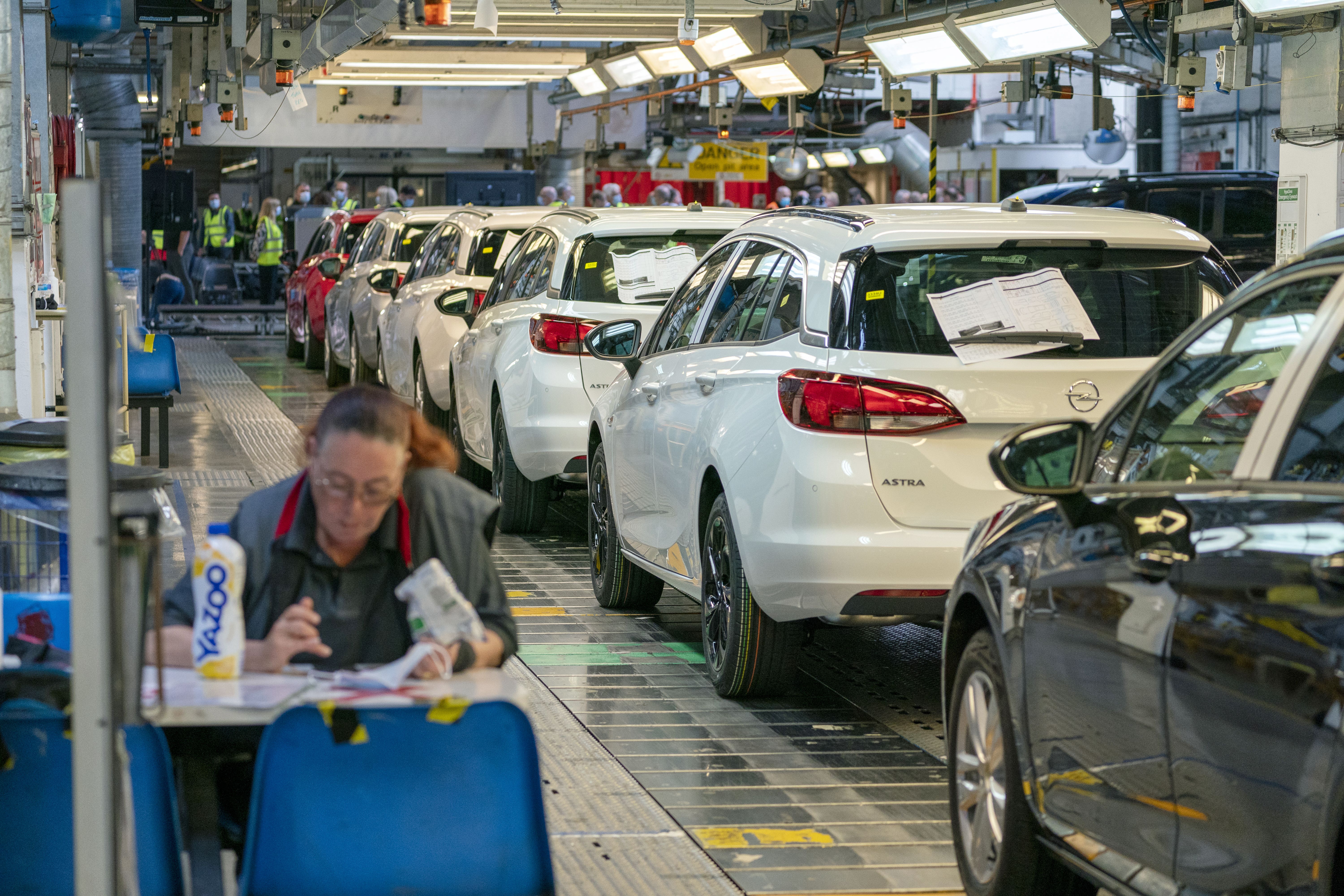Manufacturing sector shrinks for sixth consecutive month
Weak demand, supply chain constraints, strikes and high inflation all ‘stymied’ the performance of manufacturers, analysts said.

Your support helps us to tell the story
From reproductive rights to climate change to Big Tech, The Independent is on the ground when the story is developing. Whether it's investigating the financials of Elon Musk's pro-Trump PAC or producing our latest documentary, 'The A Word', which shines a light on the American women fighting for reproductive rights, we know how important it is to parse out the facts from the messaging.
At such a critical moment in US history, we need reporters on the ground. Your donation allows us to keep sending journalists to speak to both sides of the story.
The Independent is trusted by Americans across the entire political spectrum. And unlike many other quality news outlets, we choose not to lock Americans out of our reporting and analysis with paywalls. We believe quality journalism should be available to everyone, paid for by those who can afford it.
Your support makes all the difference.The UK’s manufacturing sector shrunk for the sixth consecutive month in January, although managed to slow its decline from December’s more than two-year low.
An influential survey found that companies were suffering from weak demand, high inflation and shortages of staff and raw materials.
The S&P Global/CIPS UK Manufacturing PMI scored 47 in January, up from 45.3 in December.
UK manufacturers faced a tough operating environment at the start of 2023, leading to reducing intakes of new business, declining production volumes and lower staffing levels
The index score is calculated from a survey which is filled in by companies across the country. If the score is below 50 it is taken to mean that the sector is contracting, and the further below 50 it goes, the worse the contraction is.
“UK manufacturers faced a tough operating environment at the start of 2023, leading to reducing intakes of new business, declining production volumes and lower staffing levels,” Rob Dobson, director at S&P Global Market Intelligence said.
“Weak demand at home and overseas, supply chain constraints, strikes and the continuing impact of high inflation all stymied the performance of manufacturers.
“Weak economic growth in the US, Emea (Europe, the Middle East and Africa) and across Asia is also dragging down new export wins, exacerbating the strain already caused by port delays and lingering Brexit complications.”
Concerns around a global and a deeper UK recession were cited and manufacturers reined back on job creation, reduced their staff numbers to protect profit margins or were unable to find the right skills
But he added that the contraction was at least slower than it had been towards the end of last year. This was “a possible sign that we may be past the worst of the downturn in industry,” Mr Dobson said.
Meanwhile, costs were rising slower than they had in December, and delays in supply chains were the shortest for three years.
Dr John Glen, chief economist at the Chartered Institute of Procurement & Supply, said: “Concerns around a global and a deeper UK recession were cited and manufacturers reined back on job creation, reduced their staff numbers to protect profit margins or were unable to find the right skills.
“The good reason came in the form of improved supply lines that had been struggling since the pandemic but also since Brexit.
“January saw the least marked lengthening of supplier lead times since January 2020 which may have impacted optimism amongst the makers rising to April 2022 levels.”